What is celiac disease?
Celiac disease is a digestive and immune disorder where the body overreacts to gluten, a protein found in wheat, barley and rye. Eating gluten causes the immune system to attack and damage the small intestine, preventing it from absorbing nutrients and leading to abdominal pain, bloating, diarrhea and weight loss.
Celiac disease is common in children and adults, affecting around one in 100 people worldwide. The condition prevents your body from getting the nutrients, vitamins and minerals needed to thrive, and can affect other parts of your body, leading to long-term health problems.
Celiac disease is often confused with a wheat allergy or gluten sensitivity. However, unlike an allergy or food intolerance, celiac disease damages the digestive system. You cannot prevent or cure celiac disease, but most people can control their symptoms by following a strict gluten-free diet.
Celiac disease symptoms
Celiac disease can affect your whole body and has been associated with around 300 symptoms, which can develop at any age after you start eating gluten. Symptoms will vary from one person to another. Some tend to affect young children or adolescents, while others affect older adults.
Common symptoms of celiac disease include:
- Abdominal pain
- Anemia (due to low iron levels)
- Anxiety or depression
- Attention deficit hyperactivity disorder in children
- Bloating
- Bone or joint pain
- Constipation
- Damaged tooth enamel
- Delayed puberty in teenagers
- Developmental delay in children
- Diarrhea
- Failing to grow or gain weight in babies and children
- Fatigue
- Fretfulness or irritation in babies
- Hair loss
- Low bone density or osteoporosis
- Missed menstrual periods in women
- Mouth ulcers and sores
- Overweight or obesity in infants and children
- Weight loss
Around 15% of people with celiac disease develop dermatitis herpetiformis, a long-lasting skin condition also known as “gluten rash” or “celiac rash.” It’s caused by the same gluten antibodies that harm the small intestine. The rash is very itchy and usually shows up as clusters of small bumps or blisters, often on the elbows, knees, buttocks or scalp.
When to see a doctor
See your doctor if you experience signs or symptoms of celiac disease. The condition’s symptoms occur with many other conditions, so your primary care provider can help determine their cause and find the most appropriate treatment
What causes celiac disease?
Celiac disease is partly caused by your genes and tends to run in families. Almost everyone with the disease has variants of genes that make proteins that play a critical role in your immune system. They help distinguish proteins in your body from those produced by foreign bodies, such as viruses or bacteria.
If you have celiac disease, your immune system overreacts to a part of the gluten protein called gliadin, and this causes inflammation in your small intestine. The villi, which are small, finger-like structures lining your intestinal wall, become damaged and stop absorbing nutrients effectively.
Celiac disease risk factors
Anyone can develop celiac disease, and you can start to have symptoms at any age. However, some people are more likely than others to develop the disease. Risk factors include:
- Autoimmune disorder: If you have another autoimmune disorder, such as Type 1 diabetes, Addison’s disease or multiple sclerosis, you are more at risk.
- Chromosomal disorders: You are more likely to be affected if you have Down syndrome, Turner syndrome or Williams syndrome.
- Race and ethnicity: In the US, Celiac disease is more common among white people than those from other racial and ethnic backgrounds.
- Family history: You have around a 1 in 10 chance of developing celiac disease if a close relative (such as a parent or sibling) has the disease.
- Infection: Viral infections can sometimes trigger autoimmune disorders such as celiac disease.
- Pregnancy and childbirth: Some women find symptoms develop or get worse after giving birth. This could be linked to stress.
- Sex: More women than men have celiac disease.
Celiac disease complications
If you have celiac disease, your body may not get all the nutrients it needs to stay healthy. This can increase your chance of developing other health conditions. In some cases, your small intestine becomes so severely damaged that it cannot absorb the nutrients you need even when following a gluten-free diet.
Complications of celiac disease include:
- Anemia: Often caused by an iron deficiency, anemia occurs when your body does not produce enough red blood cells.
- Cancer of the small intestine: Celiac disease increases your risk for this rare form of cancer.
- Infertility or reproductive issues: Studies suggest a link between celiac disease and reproductive problems and pregnancy complications.
- Liver damage: In some people, celiac disease can lead to liver injury or liver failure without a clear cause, a condition which may be classified as cryptogenic cirrhosis.
- Osteoporosis: People with celiac disease often lack vitamins and minerals, such as calcium and vitamin D. Osteoporosis can develop if you don’t get enough calcium and vitamin D.
How is celiac disease diagnosed?
Getting an accurate diagnosis for celiac disease involves several steps. Your doctor will look at your health history, symptoms, and use specific tests to confirm whether gluten is causing your symptoms.
Together, these steps help your healthcare team confirm a diagnosis of celiac disease or rule it out. Getting a proper diagnosis is important for managing your symptoms, preventing complications, and improving your overall health with the right treatment plan.
-
Medical history and exam
Your doctor will begin by discussing your personal health history as well as your family’s medical background. It’s important to share if any close relatives have celiac disease or other autoimmune conditions, as this increases your risk. Your doctor will also ask detailed questions about your symptoms, your current diet, and how your symptoms affect your day-to-day activities and overall quality of life.
During the physical exam, your doctor will check for physical signs of celiac disease, such as tenderness in your abdomen, skin rashes, or other signs of irritation. They will also measure your weight and height to assess if you’ve experienced any unexplained weight loss or growth issues that could be linked to malabsorption.
-
Blood tests
Blood tests are an important part of finding out if you have celiac disease. These tests look for antibodies, which are proteins your immune system makes when it reacts to gluten:
- tTG-IgA (tissue transglutaminase antibody): This is the main screening test. High levels suggest your immune system is reacting to gluten.
- EMA-IgA (endomysial antibody): This test is very specific for celiac disease and usually confirms positive tTG results.
- DGP-IgA and DGP-IgG (deamidated gliadin peptide antibodies): These tests are often used for children under 2 or when other tests give unclear results.
- Total serum IgA: Some people have low IgA levels, which can affect test results. This test checks for that deficiency to ensure accuracy.
- Genetic testing: This test checks for genes commonly found in people with celiac disease (HLA-DQ2 or HLA-DQ8). While it cannot diagnose celiac disease on its own, a negative result makes celiac disease very unlikely.
-
The gluten challenge
If you’ve already started a gluten-free diet before being tested, your results may not be accurate. In this case, your doctor may ask you to go through a “gluten challenge,” which means eating gluten-containing foods regularly for a few weeks before testing. This allows your immune system and intestines to react, making tests more reliable.
Your doctor will guide you on how much gluten to eat and for how long to minimize discomfort and risks.
-
Biopsy
A biopsy helps confirm a celiac disease diagnosis by checking for damage caused by your body’s immune response to gluten. Depending on your symptoms, your doctor may recommend one or both types of biopsy below.
- Endoscopy with biopsy: If blood test results suggest celiac disease, your doctor may recommend an upper GI endoscopy. This procedure uses a thin, flexible tube with a light and a camera to look inside your digestive tract. Your doctor will guide the scope through your mouth into your stomach and small intestine. Small tissue samples are taken from the lining of your small intestine and sent to a lab to look for signs of damage. Damage to the tiny finger-like projections in your intestine called villi is a common sign of celiac disease.
- Skin biopsy: If you have a recurring itchy rash, your doctor may recommend a skin biopsy to check for dermatitis herpetiformis. This condition is linked to celiac disease and is caused by the same immune reaction to gluten. During the biopsy, a small sample of skin near the rash is removed and checked for a specific buildup of antibodies. This test can help confirm a diagnosis when paired with your symptoms and other test results.
Celiac disease treatment
Living with celiac disease means making important lifestyle changes and staying vigilant about your health. Since celiac disease causes your immune system to react to gluten, the main treatment is to avoid gluten completely. This helps prevent damage to your small intestine and eases symptoms like stomach pain, diarrhea and fatigue.
Treatment also involves managing any related health issues, such as nutritional deficiencies or skin conditions. With the right diet, medication and ongoing care, many people with celiac disease lead healthy, active lives. Your healthcare team will work with you to create a treatment plan tailored to your needs and help you understand how to live well with celiac disease every day.
Lifestyle changes
The only way to manage celiac disease is to eliminate gluten from your diet. This can relieve your symptoms and help your small intestine heal. Your doctor might refer you to a registered dietitian who can help you plan balanced meals and get the nutrients you need.
Read labels carefully and watch out for products containing gluten, including food, supplements, drinks and cosmetics. A wide range of products are labeled gluten-free, which means they contain less than 20 parts per million of gluten. That level is generally safe to eat if you have celiac disease, but monitor your symptoms to be sure even small amounts are suitable.
If you struggle with gastrointestinal symptoms, such as constipation and diarrhea, make sure you eat enough fiber and drink plenty of water.
Your doctor can advise you about support groups in your area. This can be a good way to connect, share experiences and combat isolation.
Medication
There is no medication for celiac disease that can replace a strict gluten-free diet. However, your doctor can prescribe medications and supplements to alleviate uncomfortable symptoms and treat nutritional deficiencies or related conditions.
Medications your doctor may prescribe include:
- Antibiotics: These are commonly prescribed in pill or gel form to treat dermatitis. Other options are sulfapyridine and other sulfonamide drugs.
- Bone-building medications: Celiac disease can result in loss of bone density, so your doctor might recommend bisphosphonates or other medications to manage your risk for osteoporosis.
- Immunosuppressants: These work by preventing the immune system from overreacting. Your doctor may recommend them if you have refractory celiac disease.
Vitamins and dietary supplements
Because celiac disease damages your small intestine, it can make it harder for your body to absorb important nutrients like iron, calcium, vitamin D and B vitamins. This can lead to deficiencies that cause symptoms like fatigue, bone weakness or anemia. To help, your doctor may recommend taking vitamin and mineral supplements. These supplements can fill in the gaps and support your overall health while your intestine heals.
It’s important to talk with your doctor before starting any supplements, so they can recommend the right types and doses for you. Taking too much of certain vitamins can sometimes cause side effects. Your doctor might also order blood tests to check your nutrient levels and adjust supplements as needed.
Ongoing care
Managing celiac disease is a long-term process that requires regular follow-up with your healthcare team. Even after switching to a gluten-free diet, your doctor will want to monitor your progress and overall health. This usually involves regular checkups and blood tests to make sure your intestine is healing and your nutrient levels are improving.
Ongoing care can also help catch any complications early, such as other autoimmune conditions or bone thinning. Your doctor may adjust your treatment plan if your symptoms change or if you develop new health concerns.
Staying connected with your healthcare team, including your doctor and dietitian, helps keep you on track and supports a healthier life with celiac disease.
Find specialized care for celiac disease
At Baylor Scott & White, we offer several locations for the treatment of celiac disease, including gastroenterology centers across North and Central Texas. Our experienced team is ready to provide care to help improve your quality of life. Whether you're seeking a diagnosis or require ongoing support, we're here to support you.

Baylor Scott & White Advanced Digestive Care
3434 Swiss Ave Ste 200, Dallas, TX, 75204
- Monday: 8:00 am - 5:00 pm
- Tuesday: 8:00 am - 5:00 pm
- Wednesday: 8:00 am - 5:00 pm
- Thursday: 8:00 am - 5:00 pm
- Friday: 8:00 am - 5:00 pm

Baylor Scott & White All Saints Medical Center - Fort Worth
1400 8th Ave , Fort Worth, TX, 76104

Baylor Scott & White Ambulatory Endoscopy Center
4708 Alliance Blvd Pavilion I, Ste 210, Plano, TX, 75093
- Monday: 7:00 am - 3:00 pm
- Tuesday: 7:00 am - 3:00 pm
- Wednesday: 7:00 am - 3:00 pm
- Thursday: 7:00 am - 3:00 pm
- Friday: 7:00 am - 3:00 pm
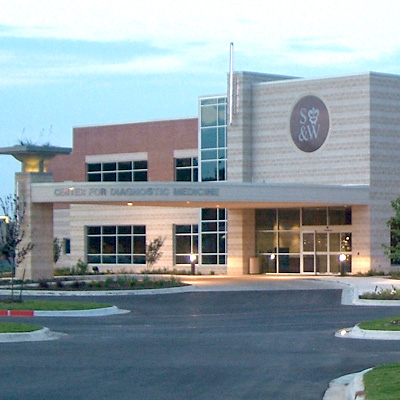
Baylor Scott & White Center for Diagnostic Medicine - Temple
1605 S 31st St , Temple, TX, 76508

Baylor Scott & White Center for Esophageal Diseases
3434 Swiss Ave Ste 200, Dallas, TX, 75204
- Monday: 9:00 am - 5:00 pm
- Tuesday: 9:00 am - 5:00 pm
- Wednesday: 9:00 am - 5:00 pm
- Thursday: 9:00 am - 5:00 pm
- Friday: 9:00 am - 1:00 pm

Baylor Scott & White Center for Esophageal Diseases - Sammons Center (Prearranged Appointment)
3410 Worth St Ste 235, Dallas, TX, 75246

Baylor Scott & White Center for Inflammatory Bowel Diseases
3409 Worth St Ste 600, Dallas, TX, 75246
- Monday: 8:30 am - 4:30 pm
- Tuesday: 8:30 am - 4:30 pm
- Wednesday: 8:30 am - 4:30 pm
- Thursday: 8:30 am - 4:30 pm
- Friday: 8:30 am - 4:30 pm

Baylor Scott & White Center for Inflammatory Bowel Diseases - Lubbock
3711 22nd St Ste B, Lubbock, TX, 79410

Baylor Scott & White Clinic - Austin Oak Hill
5251 US 290 , Austin, TX, 78735
- Monday: 8:00 am - 5:00 pm
- Tuesday: 8:00 am - 5:00 pm
- Wednesday: 8:00 am - 5:00 pm
- Thursday: 8:00 am - 5:00 pm
- Friday: 8:00 am - 5:00 pm

Baylor Scott & White Clinic - Buda Medical Center
5330 Overpass Rd Ste 100, Buda, TX, 78610
- Monday: 8:00 am - 5:00 pm
- Tuesday: 8:00 am - 5:00 pm
- Wednesday: 8:00 am - 5:00 pm
- Thursday: 8:00 am - 5:00 pm
- Friday: 8:00 am - 5:00 pm
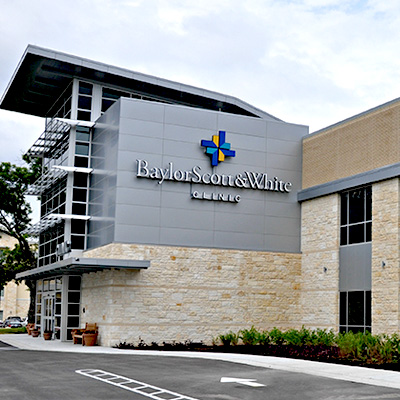
Baylor Scott & White Clinic - Cedar Park
910 E Whitestone Blvd , Cedar Park, TX, 78613
- Monday: 8:00 am - 5:00 pm
- Tuesday: 8:00 am - 5:00 pm
- Wednesday: 8:00 am - 5:00 pm
- Thursday: 8:00 am - 5:00 pm
- Friday: 8:00 am - 5:00 pm
- Monday: 7:00 am - 5:00 pm
- Tuesday: 7:00 am - 5:00 pm
- Wednesday: 7:00 am - 5:00 pm
- Thursday: 7:00 am - 5:00 pm
- Friday: 7:00 am - 5:00 pm
- Saturday: 9:00 am - 2:00 pm

Baylor Scott & White Clinic - College Station Rock Prairie
800 Scott and White Dr , College Station, TX, 77845
- Monday: 7:30 am - 5:00 pm
- Tuesday: 7:30 am - 5:00 pm
- Wednesday: 7:30 am - 5:00 pm
- Thursday: 7:30 am - 5:00 pm
- Friday: 7:30 am - 5:00 pm
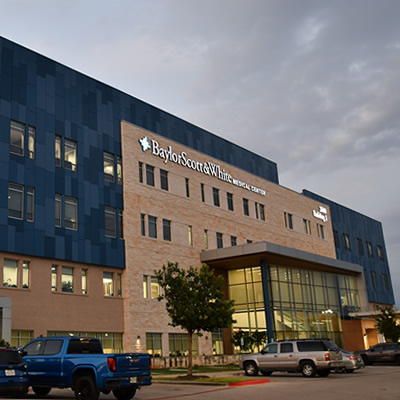
Baylor Scott & White Clinic - Pflugerville Medical Center (Building 1)
2600 E Pflugerville Pkwy Bldg 1, Ste 200, Pflugerville, TX, 78660
- Monday: 8:00 am - 5:00 pm
- Tuesday: 8:00 am - 5:00 pm
- Wednesday: 8:00 am - 5:00 pm
- Thursday: 8:00 am - 5:00 pm
- Friday: 8:00 am - 5:00 pm
- Monday: 7:30 am - 4:00 pm
- Tuesday: 7:30 am - 4:00 pm
- Wednesday: 7:30 am - 4:00 pm
- Thursday: 7:30 am - 4:00 pm
- Friday: 7:30 am - 4:00 pm
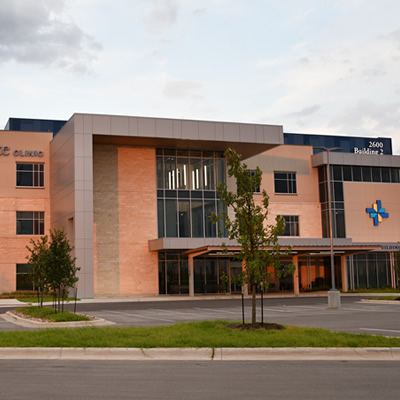
Baylor Scott & White Clinic - Pflugerville Medical Center Building 2
2600 E Pflugerville Pkwy Building 2, Pflugerville, TX, 78660
- Monday: 8:00 am - 5:00 pm
- Tuesday: 8:00 am - 5:00 pm
- Wednesday: 8:00 am - 5:00 pm
- Thursday: 8:00 am - 5:00 pm
- Friday: 8:00 am - 5:00 pm
- Monday: 8:00 am - 4:00 pm
- Tuesday: 8:00 am - 4:00 pm
- Wednesday: 8:00 am - 4:00 pm
- Thursday: 8:00 am - 4:00 pm
- Friday: 8:00 am - 4:00 pm

Baylor Scott & White Clinic - Round Rock 300 University
300A University Blvd , Round Rock, TX, 78665
- Monday: 8:00 am - 5:00 pm
- Tuesday: 8:00 am - 5:00 pm
- Wednesday: 8:00 am - 5:00 pm
- Thursday: 8:00 am - 5:00 pm
- Friday: 8:00 am - 5:00 pm
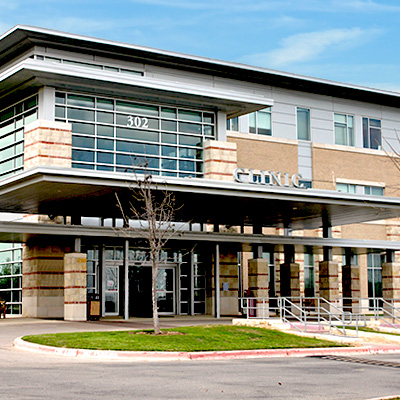
Baylor Scott & White Clinic - Round Rock 302 University
302 University Blvd , Round Rock, TX, 78665
- Monday: 8:00 am - 5:00 pm
- Tuesday: 8:00 am - 5:00 pm
- Wednesday: 8:00 am - 5:00 pm
- Thursday: 8:00 am - 5:00 pm
- Friday: 8:00 am - 5:00 pm

Baylor Scott & White Clinic - Taylor
403 Mallard Ln , Taylor, TX, 76574
- Monday: 7:30 am - 5:00 pm
- Tuesday: 7:30 am - 5:00 pm
- Wednesday: 7:30 am - 5:00 pm
- Thursday: 7:30 am - 5:00 pm
- Friday: 7:30 am - 4:00 pm

Baylor Scott & White Clinic - Temple
2401 S 31st St , Temple, TX, 76508
- Monday: 8:00 am - 5:00 pm
- Tuesday: 8:00 am - 5:00 pm
- Wednesday: 8:00 am - 5:00 pm
- Thursday: 8:00 am - 5:00 pm
- Friday: 8:00 am - 5:00 pm

Baylor Scott & White Clinic - Waco
7700 Fish Pond Rd , Waco, TX, 76710
- Monday: 8:00 am - 5:00 pm
- Tuesday: 8:00 am - 5:00 pm
- Wednesday: 8:00 am - 5:00 pm
- Thursday: 8:00 am - 5:00 pm
- Friday: 8:00 am - 5:00 pm

Baylor Scott & White Digestive Diseases - Centennial
4461 Coit Rd Pav 2, Ste 401, Frisco, TX, 75035
- Monday: 8:30 am - 4:30 pm
- Tuesday: 8:30 am - 4:30 pm
- Wednesday: 8:30 am - 4:30 pm
- Thursday: 8:30 am - 4:30 pm
- Friday: 8:30 am - 4:30 pm

Baylor Scott & White Digestive Diseases - Fort Worth
1250 8th Ave Ste 650, Fort Worth, TX, 76104
- Monday: 8:00 am - 5:00 pm
- Tuesday: 8:00 am - 5:00 pm
- Wednesday: 8:00 am - 5:00 pm
- Thursday: 8:00 am - 5:00 pm
- Friday: 8:00 am - 12:00 pm

Baylor Scott & White Digestive Diseases - Prosper
111 S Preston Rd Ste 10, Prosper, TX, 75078
- Monday: 8:30 am - 4:30 pm
- Tuesday: 8:30 am - 4:30 pm
- Wednesday: 8:30 am - 4:30 pm
- Thursday: 8:30 am - 4:30 pm
- Friday: 8:30 am - 4:30 pm

Baylor Scott & White Digestive Diseases - Waxahachie
2360 N Interstate 35E Ste 310 , Waxahachie, TX, 75165
- Monday: 8:00 am - 4:30 pm
- Tuesday: 8:00 am - 4:30 pm
- Wednesday: 8:00 am - 4:30 pm
- Thursday: 8:00 am - 4:30 pm
- Friday: 8:00 am - 4:30 pm

Baylor Scott & White Digestive Diseases and Medical Weight Loss - Plano
4716 Alliance Blvd Pavilion II, Ste 470, Plano, TX, 75093
- Monday: 8:00 am - 5:00 pm
- Tuesday: 8:00 am - 5:00 pm
- Wednesday: 8:00 am - 5:00 pm
- Thursday: 8:00 am - 5:00 pm
- Friday: 8:00 am - 5:00 pm

Baylor Scott & White Digestive Diseases at The Star
3800 Gaylord Pkwy Ste 910, Frisco, TX, 75034
- Monday: 8:30 am - 4:30 pm
- Tuesday: 8:30 am - 4:30 pm
- Wednesday: 8:30 am - 4:30 pm
- Thursday: 8:30 am - 4:30 pm
- Friday: 8:30 am - 4:30 pm

Baylor Scott & White Digestive Diseases Group - Anna
450 N Standridge Blvd Ste 104, Anna, TX, 75409

Baylor Scott & White Digestive Diseases Group - Garland
7217 Telecom Pkwy Ste 300, Garland, TX, 75044
- Monday: 8:00 am - 5:00 pm
- Tuesday: 8:00 am - 5:00 pm
- Wednesday: 8:00 am - 5:00 pm
- Thursday: 8:00 am - 5:00 pm
- Friday: 8:00 am - 5:00 pm

Baylor Scott & White Digestive Diseases Group - McKinney
5236 W University Dr Ste 3800, McKinney, TX, 75071

Baylor Scott & White Digestive Diseases Group - McKinney
5236 W University Dr Ste 3800, McKinney, TX, 75071
- Monday: 8:30 am - 4:30 pm
- Tuesday: 8:30 am - 4:30 pm
- Wednesday: 8:30 am - 4:30 pm
- Thursday: 8:30 am - 4:30 pm
- Friday: 8:30 am - 4:30 pm

Baylor Scott & White Digestive Diseases Group - Park Cities
9101 N Central Expy Ste 300C, Dallas, TX, 75231

Baylor Scott & White Digestive Diseases Group - Plano
4708 Alliance Blvd Pavilion I, Ste 200, Plano, TX, 75093
- Monday: 8:00 am - 5:00 pm
- Tuesday: 8:00 am - 5:00 pm
- Wednesday: 8:00 am - 5:00 pm
- Thursday: 8:00 am - 5:00 pm
- Friday: 8:00 am - 5:00 pm

Baylor Scott & White Digestive Diseases Group at The Star
3800 Gaylord Pkwy Ste 910, Frisco, TX, 75034
- Monday: 8:00 am - 5:00 pm
- Tuesday: 8:00 am - 5:00 pm
- Wednesday: 8:00 am - 5:00 pm
- Thursday: 8:00 am - 5:00 pm
- Friday: 8:00 am - 5:00 pm

Baylor Scott & White Gastroenterology - Greenville
4400 Interstate 30 W Ste 300, Greenville, TX, 75402

Baylor Scott & White Gastroenterology - Lake Pointe
6705 Heritage Pkwy Ste 203, Rockwall, TX, 75087

Baylor Scott & White McLane Children's at Baylor Scott & White Clinic - College Station University Drive
1700 University Dr E East Entrance 15, First Floor, Desk P, College Station, TX, 77840
- Monday: 8:00 am - 7:00 pm
- Tuesday: 8:00 am - 5:00 pm
- Wednesday: 8:00 am - 7:00 pm
- Thursday: 8:00 am - 5:00 pm
- Friday: 8:00 am - 5:00 pm

Baylor Scott & White McLane Children's at Baylor Scott & White Clinic - Round Rock 425 University
425 University Blvd Floor 3, Round Rock, TX, 78665
- Monday: 7:00 am - 6:00 pm
- Tuesday: 7:00 am - 6:00 pm
- Wednesday: 7:00 am - 6:00 pm
- Thursday: 7:00 am - 6:00 pm
- Friday: 7:00 am - 6:00 pm

Baylor Scott & White McLane Children's at Baylor Scott & White Specialty Clinic - Killeen Hemingway
2405 S Clear Creek Rd Ste 310, Killeen, TX, 76549
- Monday: 7:00 am - 7:00 pm
- Tuesday: 7:00 am - 7:00 pm
- Wednesday: 7:00 am - 7:00 pm
- Thursday: 7:00 am - 7:00 pm
- Friday: 7:00 am - 7:00 pm

Baylor Scott & White McLane Children's Medical Center - Temple
1901 SW H K Dodgen Loop , Temple, TX, 76502

Baylor Scott & White McLane Children's Specialties at Baylor Scott & White Clinic - Round Rock 425 University
425 University Blvd , Round Rock, TX, 78665
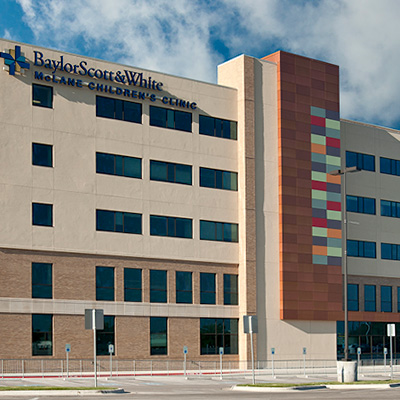
Baylor Scott & White McLane Children's Specialty Clinic - Temple
1901 SW H K Dodgen Loop , Temple, TX, 76502

Baylor Scott & White McLane Children's Specialty Clinic - Waco Hillcrest
120 Hillcrest Medical Blvd Bldg II, Ste 101, Waco, TX, 76712
- Monday: 8:00 am - 5:00 pm
- Tuesday: 8:00 am - 5:00 pm
- Wednesday: 8:00 am - 5:00 pm
- Thursday: 8:00 am - 5:00 pm
- Friday: 8:00 am - 5:00 pm

Baylor Scott & White Medical Center - Austin
5245 W US Hwy 290 Service Rd , Austin, TX, 78735

Baylor Scott & White Medical Center - Buda
5330 Overpass Rd , Buda, TX, 78610

Baylor Scott & White Medical Center - Centennial
12505 Lebanon Rd , Frisco, TX, 75035

Baylor Scott & White Medical Center - College Station
700 Scott and White Dr , College Station, TX, 77845

Baylor Scott & White Medical Center - Frisco
5601 Warren Pkwy , Frisco, TX, 75034
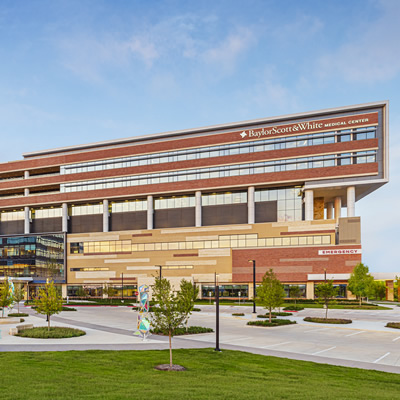
Baylor Scott & White Medical Center - Frisco at PGA Parkway
7600 Better Way , Frisco, TX, 75033

Baylor Scott & White Medical Center - Grapevine
1650 W College St , Grapevine, TX, 76051

Baylor Scott & White Medical Center - Irving
1901 N MacArthur Blvd , Irving, TX, 75061

Baylor Scott & White Medical Center - Lake Pointe
6800 Scenic Dr , Rowlett, TX, 75088
Frequently asked questions
-
How do you test for celiac disease?
Common tests for celiac disease are blood tests and biopsies of your small intestine or skin. Your blood will be tested for antibodies, which can indicate an overreactive immune response. A genetic test can confirm if you have genes linked to celiac disease, but not if you have it.
-
How common is celiac disease?
Celiac disease affects around 1% of the population. Almost three million people in the United States are living with the disease. However, the condition is often undiagnosed.
-
Is celiac disease an autoimmune disease?
Celiac disease is considered an autoimmune disease. Your immune system overreacts to a protein in gluten and mistakenly attacks healthy cells in your small intestine.
-
Can celiac disease go away?
Celiac disease is a lifelong condition. If you have been diagnosed, you will have to follow a gluten-free diet for the rest of your life. Most people can manage their condition effectively by changing their diet.
-
What does celiac disease feel like?
Celiac disease feels different based on your symptoms. The classic disease causes stomach pain, bloating, constipation or diarrhea and other symptoms. You might also feel tired more easily, lack energy and have itchy skin.
However, some people do not experience GI symptoms, and others do not have any symptoms at all.
-
Can you develop celiac disease later in life?
Yes, celiac disease can develop later in life. Even if you’ve eaten gluten without issues before, symptoms can show up in adulthood due to genetics, illness or stress, or better medical awareness. Talk to your doctor if you notice new digestive symptoms or suspect gluten sensitivity.
-
Is celiac disease genetic?
Yes, celiac disease is hereditary, meaning that it runs in families. People with a first-degree relative with celiac disease, such as a parent, child or sibling, have a one in 10 risk of developing celiac disease.
Expert advice from our blog
Scrubbing In® is a place where hands-on healthcare discussions are happening every day with the people whose own hands are on the front lines of patient care—the doctors, nurses and medical staff who are saving lives and advancing medicine.How we reviewed this page
-
July 14, 2025

